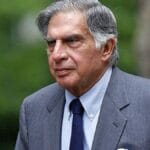Heart attacks have long been considered a health issue affecting older adults. However, recent trends in India reveal a disturbing shift: more young people are experiencing heart attacks than ever before. Understanding why this is happening and how to prevent it is crucial for safeguarding the health of our youth.
A Startling Incident Highlights a Growing Problem
On September 17, 2023, a 25-year-old man tragically died of a heart attack while running on a treadmill at a gym in Ghaziabad, India1. This incident is not isolated; it’s part of an alarming rise in heart attacks among young Indians.
The Alarming Statistics
- Increase in Heart Attack Deaths: In 2022, over 32,410 people in India died due to heart attacks, marking a 14% increase from the previous year2.
- Young Victims: A significant number of these deaths occurred in people under 40 years old.
- Gender Breakdown: Approximately 28,000 of the deceased were men.
- Age Group Impact: More than 22,000 individuals were between 40 and 60 years old.
Rising Trend Among the Youth
- Annual Increase: Heart attacks in people under 40 have risen by 2% annually over the past decade3.
- Historical Comparison:
- In the 1990s, only 3% of heart attack patients were under 40.
- Today, that number has jumped to 12%.
Age-Wise Heart Attack Incidence
| Age Group | Heart Attack Incidence (per 100,000) | Percentage Increase Over Last 5 Years |
|---|---|---|
| 18-25 | 11.2 | 8.5% |
| 26-35 | 23.7 | 12.3% |
| 36-40 | 42.1 | 15.8% |
These statistics highlight a pressing health crisis: heart attacks are increasingly affecting India’s youth.
Why Are Young People Having More Heart Attacks?
Several factors contribute to this troubling trend:
1. Unhealthy Lifestyle Choices
- Poor Diet: High consumption of junk food, sugary drinks, and unhealthy fats leads to obesity, high cholesterol, and diabetes.
- Lack of Exercise: Sedentary lifestyles weaken the heart and contribute to weight gain.
- Smoking and Vaping: Tobacco use damages blood vessels and the heart.
- Substance Abuse: Alcohol and drug use increase blood pressure and heart strain.
2. High Stress Levels
- Academic and Work Pressure: Intense competition and workload can lead to chronic stress.
- Mental Health Issues: Anxiety and depression can negatively impact heart health.
3. Genetic Predispositions
- Family History: Genetics can increase the risk of heart disease, even in young people.
- Inherited Conditions: Some may inherit high cholesterol or other risk factors.
4. Environmental Factors
- Air Pollution: Exposure to pollutants can damage the cardiovascular system.
- Toxins: Chemicals in the environment may contribute to heart problems.
Recognizing Warning Signs in Young People
Early detection of heart issues is vital. Symptoms can be different in young people compared to older adults.
Common Symptoms
- Chest Pain or Discomfort: May feel like pressure, squeezing, or fullness.
- Shortness of Breath: Especially during rest or minimal activity.
- Extreme Fatigue: Unusual tiredness that doesn’t improve with rest.
- Nausea or Vomiting: Sometimes mistaken for indigestion.
- Dizziness or Lightheadedness: Feeling faint or unsteady.
- Sweating: Cold sweat without apparent cause.
Unique Risk Factors
- Obesity and Insulin Resistance: Linked to poor diet and inactivity.
- High Blood Pressure and Cholesterol: Can develop early due to lifestyle.
- Substance Use: Smoking, vaping, and drugs increase risk significantly.
Importance of Family History
- Genetic Risk: A family history of early heart disease raises personal risk.
- Early Screening: Those with a family history should have regular check-ups.
Preventing Heart Attacks: What Can Be Done?
Healthy Lifestyle Choices
Diet and Nutrition
- Eat Heart-Healthy Foods: Focus on fruits, vegetables, whole grains, lean proteins, and healthy fats.
- Limit Unhealthy Foods: Reduce intake of saturated fats, trans fats, salt, and added sugars.
- Stay Hydrated: Drink plenty of water instead of sugary drinks.
Physical Activity
- Regular Exercise: Aim for at least 30 minutes of moderate activity most days.
- Stay Active: Incorporate movement throughout the day—take stairs, walk or cycle instead of driving.
Avoid Tobacco and Limit Alcohol
- Quit Smoking and Vaping: Seek support to stop tobacco use.
- Moderate Alcohol Consumption: Limit to one drink per day for women and two for men.
Stress Management
- Mindfulness and Relaxation: Practices like meditation, yoga, or deep-breathing exercises can reduce stress.
- Adequate Sleep: Aim for 7-9 hours of quality sleep each night.
- Time Management: Prioritize tasks and set realistic goals to reduce pressure.
Regular Health Check-Ups
- Blood Pressure Monitoring: Check at least once every two years or as advised.
- Cholesterol Levels: Have levels tested every five years, or more often if necessary.
- Blood Sugar Levels: Monitor for signs of diabetes, especially if overweight or with a family history.
Be Informed and Proactive
- Know Your Family History: Discuss any heart issues with your doctor.
- Recognize Symptoms: Don’t ignore warning signs; seek medical attention promptly.
- Educate Yourself and Others: Share information about heart health with friends and family.
Conclusion
The increase in heart attacks among young Indians is a serious concern that requires immediate action. By understanding the causes and implementing preventive measures, we can help reverse this trend.
Remember: Taking care of your heart is an investment in your future. Healthy habits developed now can lead to a longer, more fulfilling life.
Frequently Asked Questions (FAQ)
Q: How can I prevent a heart attack at a young age?
A: Adopt a healthy lifestyle by eating a balanced diet, exercising regularly, avoiding tobacco and excessive alcohol, managing stress, and getting regular health check-ups.
Q: What are the early signs of a heart attack in young people?
A: Symptoms can include chest discomfort, shortness of breath, extreme fatigue, nausea, dizziness, and cold sweats. If you experience these, seek medical help immediately.
Q: Does family history affect my risk of a heart attack?
A: Yes, a family history of heart disease can increase your risk. It’s important to inform your doctor and take preventive steps.
Q: Are heart attacks in young people different from those in older adults?
A: While the basic mechanism is the same, young people might experience different symptoms and may have different contributing factors like lifestyle choices and genetic predispositions.
Q: Can stress cause a heart attack?
A: Chronic stress can contribute to heart disease by increasing blood pressure and leading to unhealthy behaviors. Managing stress is important for heart health.
Sources
Note: This article aims to present information in a clear, accessible manner to help readers understand the rising issue of heart attacks among young people in India and offers practical advice on prevention.























